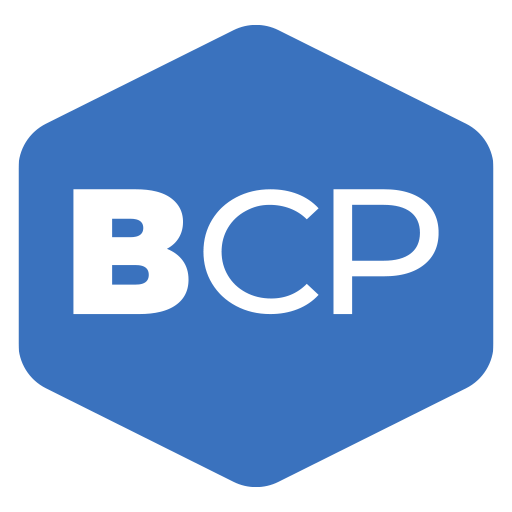In today’s competitive automotive industry, every lead and interaction can make the difference between a successful sale and a missed opportunity. Sales is getting a makeover, while the growing influence of business development centers (BDCs) is helping dealerships optimize the customer experience.
In the face of these shifts, a key question dealers are asking themselves is “Which is better for my dealership: salespeople or a BDC?” Let’s take a closer look at the question of BDCs vs. salespeople – and how they complement each other.
Summary
The Evolution of Automotive Sales and BDCs
Traditional salespeople have long been the face of the car sales process, building customer relationships through in-person interactions in the showroom setting. Yet the modern car sales arena has evolved from on-lot to hybrid – or even fully online. Today’s connected customers have a solid sense of what they’re looking for by the time they hit the showroom. The buyer-seller dynamic has shifted, and dealerships need to respond with tech-savvy, personalized auto sales that engage customers across various channels.
The emergence of BDCs is a game-changer, playing a pivotal role in streamlining auto sales. Bridging the gap between the automotive industry’s digital and physical worlds, BDCs serve as the back office of a dealership’s sales departments. They take on the bulk of the pre-sale legwork by generating and nurturing leads across the entire sales funnel. So how do BDCs differ from traditional end-to-end sales?
Customer Engagement: BDCs vs. Salespeople
In the realm of customer engagement, BDCs and salespeople each make a unique contribution to the sales journey, from prospect to satisfied customer.
What Do Salespeople Do?
Salespeople are the architects of relationships, skilled at cultivating a deep understanding of the customer’s needs and preferences. Their ability to establish a rapport with customers is unparalleled, making them a driving force behind the sales journey. They’re experts in building trust, providing in-depth product knowledge, navigating customer decision-making, and cultivating lasting relationships. As a customer progresses toward final purchase, salespeople play a pivotal role in negotiating terms and sealing the deal.
What Does a BDC Do?
BDCs are the orchestrators of initial engagement, laying the groundwork for a successful sales journey. Their focus is on lead generation and the preliminary stages of customer engagement, setting the tone for the entire process and ensuring a personalized approach. Armed with advanced data analytic tools, a BDC sales manager can identify preferences and pinpoint customers with the highest likelihood of conversion.
BDCs also excel in appointment-setting, paving a smooth transition from initial interest to a more personalized interaction with the sales team, and enabling salespeople to focus on qualified leads that are primed for conversion.
Internet Sales Departments vs. BDCs
What about internet sales departments (ISDs)? While they’ve been a staple in the automotive industry, the rise of new technology has sparked a debate over the effectiveness of internet sales departments vs. business development centers. Both play essential roles at a dealership, but their responsibilities and benefits are distinct. Here’s how they differ.
Focus of Interaction
- Internet sales teams primarily engage with customers who have initiated contact online (through a dealership’s website, online advertising, third-party automotive platforms, etc.).
- BDCs proactively reach out to potential customers across various channels (through outbound calls, email marketing campaigns, social media, online inquiries, etc.).
Lead Generation vs. Lead Management
- Internet sales departments focus on managing leads generated through online channels.
- BDCs are responsible for both generating and managing leads across a range of channels.
Closing Deals
- Internet sales teams are often directly involved in closing deals, converting online leads into vehicle sales themselves.
- BDCs focus on the initial stages of customer interaction and collaborate with sales teams, handing over high-potential customers for further engagement and deal-closing. Paying a BDC for sales leads is a common tactic.
Synergy in Action: When BDCs and Salespeople Collaborate
Understanding the nuances of BDCs vs. salespeople is key for dealerships aiming to thrive in the competitive sales landscape. But it’s not necessarily a matter of choosing one over the other. Recognizing how the two complement each other can make your team a powerhouse of lead generation and conversion.
When it comes to BDCs vs. salespeople, the synergy between them is often where the magic happens. While salespeople bring the human touch, fostering meaningful connections and mastering the art of closing deals, BDCs streamline the sales funnel, laying the foundation for salespeople to step in and convert the most promising leads.
Armed with a BDC’s valuable insights, salespeople can fine-tune their approach and offer personalized solutions that resonate with the customer. The result is a well-rounded customer engagement strategy, and a dynamic alliance in which each entity’s strengths complement the other.
Empowering Sales Teams Through BDC Appointments
Introducing BDC appointments to salespeople has revolutionized the sales process. Traditionally, the burden of lead generation, customer outreach, and appointment scheduling has fallen squarely on the shoulders of car salespeople – all while working toward closing the sale. BDCs are strategically positioned to alleviate this administrative burden from their shoulders.
When a potential customer expresses interest in a vehicle, the BDC team takes charge. They handle the preliminary stages of customer interaction, addressing inquiries, providing information, and scheduling appointments that show, rolling out the red carpet for sales team engagement.
A BDC is not just about offloading tasks; it’s a paradigm shift toward a more efficient, specialized sales approach that leads the customer to the showroom. Yet some dealerships may already have an internet sales department to handle online inquiries and convert them to showroom interactions. So, what sets the two apart?
Driving Success: Use Cases for BDCs vs. Salespeople
We’ve established that BDCs and salespeople each play a role in driving customer engagement and automotive sales. Let’s consider a few use cases that demonstrate the unique-yet-complementary contribution of each.
Database Management and Targeted Marketing
- BDCs maintain customer databases, using contact information to create targeted marketing campaigns, personalized BDC sales voicemail scripts, and tailored offers.
- Salespeople collaborate with BDCs to leverage customer data for targeted sales, personalizing their approach to align with customer preferences.
Appointment-Setting and Test Drives
- BDCs excel in setting appointments for customers to visit the dealership and take a test drive at their scheduling convenience.
- Salespeople take the lead during test drives, leveraging their product knowledge to showcase vehicle features and benefits, based on individual customer preferences.
Digital Engagement and Virtual Sales
- BDCs adapt to the growing trend of online car shopping, leveraging digital channels such as online chats and platforms for virtual engagement and virtual showroom experiences.
- Salespeople complement a BDC’s digital engagement through personalized virtual consultations and virtual walkarounds that synthesize the in-person showroom experience.
Event Promotion for Customer Engagement
- BDCs coordinate and promote sales promotions, dealership anniversaries, and new model launches, drumming up interest among potential customers and keeping them engaged.
- Salespeople interact with customers during these showroom events, through product demonstrations and personalized test drives that build customer relationships and drive sales.
The Future of BDC Sales
As technology continues to advance, so will BDC operations. Enhanced data analytics will bring dealerships increasingly valuable insights into customer behavior and preferences, optimizing engagement through targeted sales strategies.
But the future of BDC sales hinges on its ability to adapt to and embrace these technological innovations. Individuals who master the art of how to be great at BDC sales will bring in more quality leads and more sales. At the same time, salespeople who successfully integrate BDC tools into their customer engagement strategies will position themselves at the forefront of the industry, well-equipped to meet evolving expectations.
Moving Forward
By integrating an outsourced automotive BDC, dealerships can effectively keep customers engaged, maximize the performance of their sales teams, and enhance their auto sales. If you’re interested in determining whether a BDC is the right fit for your dealership, talk with an expert at Better Car People. Book a meeting today to learn how we can help support your dealership’s customer engagement objectives.












